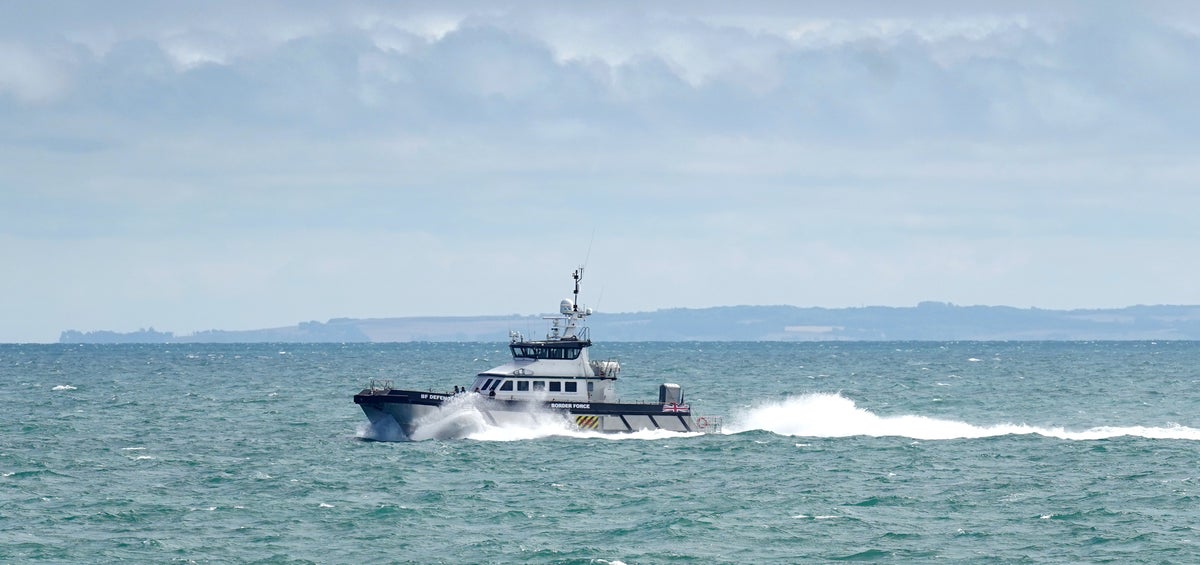
The UK forcibly returned only 21 asylum seekers to “safe third countries” in the 18 months since Brexit came into effect, new figures show as the Rwanda scheme stalls.
Almost 16,000 asylum seekers were considered for removal because the government declared their claims “inadmissible” between 1 January 2021 and the end of June.
Statistics released by the Home Office showed that of those, only 21 people were removed from the UK, to countries including Ireland, Germany, Italy and Spain, after a key EU transfer deal in Brexit.
The government claimed it would replace the scheme with bilateral agreements, but none have been struck with EU nations and several told The Independent they would not negotiate such an agreement.
Ministers intend to make Rwanda a new “safe third country” to process asylum claims for the same cohort of people, but the scheme has been paused amid a series of legal challenges.
Afghans and Ukrainians have not been ruled out of the programme, which is based on the method of travel to the UK rather than whether someone is a refugee.
Under the UK’s internal immigration rules, it can declare asylum seekers “inadmissible” for consideration if they have travelled through and spent time in safe third countries, where they could have asked for protection.
Official Home Office guidance says an asylum seeker who “spent a couple of weeks in Brussels staying with friends whilst trying to find an agent to bring them illegally to the UK” could be declared inadmissible, and that officials should check for “material in their belongings such as receipts and tickets” from shops and transport.
The guidance says that removal to Rwanda should be considered if it “stands a greater chance” than removal to the country they are deemed to have a connection to.
Figures released on Thursday showed that 63,089 asylum applications, relating to 75,181 people, were made in the year ending June 2022 – the highest number in almost two decades.
The backlog of Home Office decisions is at a record high, with more than 166,000 cases marked as a “work in progress” in the asylum system. Almost 86,000 initial decisions have been pending for more than six months.
More than three quarters of applications were granted at the first stage in the year to June, and half of the refusals appealed were successfully overturned.
The largest group of asylum seekers were Iranian, followed by Albanians – who have rocketed rapidly amid a surge of arrivals from the country on small boats – Iraqis, Afghans, Eritreans and Syrians.
Rishi Sunak says he will do ‘whatever it takes’ to make Rwanda deportation plans work
Just over half of Albanian asylum applications are currently granted, but Home Office officials believe the number could drop as Channel crossings rise.
Around 6,000 Albanians have arrived on small boats so far in 2022, and they make up between 50 to 60 per cent of daily crossings – including a large proportion of the record daily total seen on Monday.
On Wednesday, the government claimed that Albanians making “spurious asylum claims” would be sent back to the country under an agreement with its government.
Priti Patel, the home secretary, said: “Large numbers of Albanians are being sold lies by ruthless people smugglers and vicious organised crime gangs, leading them to take treacherous journeys in flimsy boats to the UK. This abuse of our immigration system and people risking their lives cannot go on.”
Since 2018, 94 per cent of migrants crossing the Channel in dinghies have claimed asylum. Half of the claims were granted, 43 per cent were declared “inadmissible” because of their time in safe third countries and only 8 per cent were refused.
Under British law, people have to be present in the UK to make an asylum application and there is no visa for that purpose. The government has set up bespoke schemes to resettle people directly from countries including Afghanistan, and offered Ukrainian refugees three-year visas, but parliamentary committees have said there must be more safe and legal routes to reduce demand for Channel crossings.
In the year to June, almost 13,000 people were granted refugee status after making their own way to the UK and applying for asylum, and only 1,600 were granted the same status through resettlement.
Dr Peter William Walsh, senior researcher at the Migration Observatory at the University of Oxford, said: “The data show the vastly different experiences that refugees from different countries have reaching the UK. Most Afghan refugees cannot access the UK resettlement schemes, and there is no way to apply to them.
“That explains why a substantial number of Afghans are coming through the asylum system despite the prospect of long waiting times and recent policies designed to deter asylum seekers. By contrast, where there have been legal routes to seek protection in the UK as in the Ukraine and Hong Kong cases, people have been keen to take them up.”